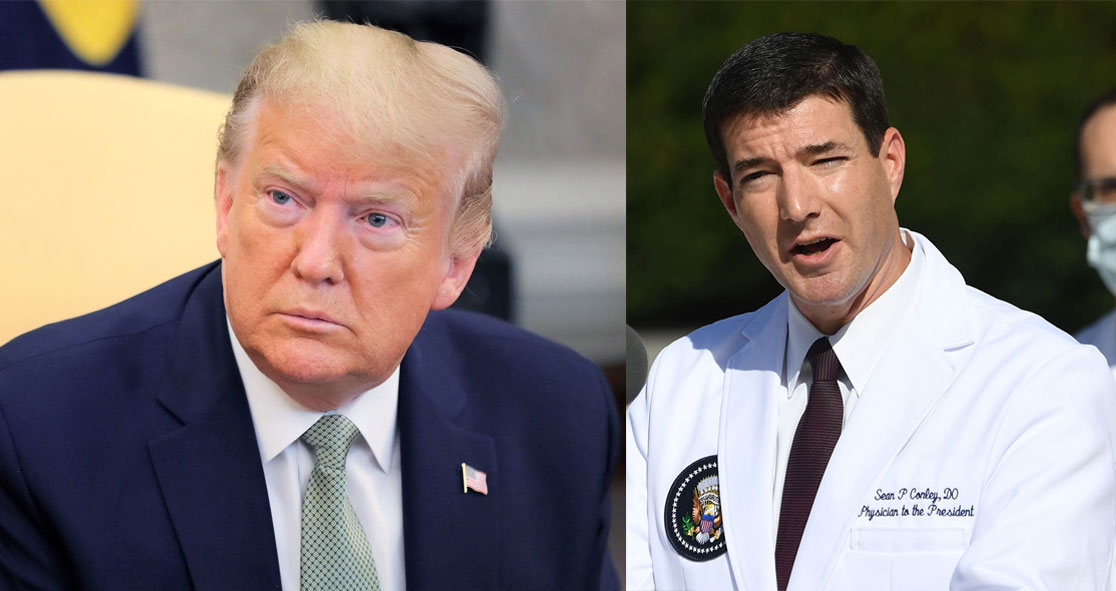On Monday, President Donald Trump’s personal physician Dr. Sean Conley said the president has now tested negative for COVID-19 for two consecutive days.
However, Dr. Conley’s statement did not mention when Trump was tested and the type of test cited raises questions.
Dr. Conley said Trump has “tested negative on consecutive days using Abbott’s BinexNOW antigen card,” adding that in combination with additional data on “viral load, subgenomic RNA and PCR cycle threshold measurements,” the tests indicate “a lack of detectable virus replication.”
The president’s personal physician did not mention specific numbers about the PCR threshold. He also did not say whether Trump tested negative with a PCR laboratory test, which is a more sensitive and reliable test in determining whether people are infectious.
BinexNOW test does not seem to fall inside the scope of the FDA’s emergency use authorization of it. Typically, the test should be used “within the first seven days of symptom onset,” but Trump developed coronavirus symptoms 10 days ago.
Dr. Bobbi Pritt, Chair, Division of Clinical Microbiology at the Mayo Clinic, told the Association of American Medical Colleges that PCR tests might show positive results even though someone isn’t actively infectious.
“You can be PCR-positive for weeks to months but you probably aren’t infectious,” she said. “You’re just shedding little bits of dead RNA. The test does not distinguish live virus from dead virus.”
However, the White House has not yet said when Trump was last tested negative for COVID-19 before his diagnosis. Officials continue to dodge questions about the issue.
Experts have called on the White House to publish the PCR threshold results.
Dr. Ashish Jha, Dean of Brown University’s School of Public Health, said, “So my best guess is that the President likely isn’t contagious anymore, but negative antigen tests aren’t really useful in determining infectiousness. Request for Dr. Conley: please report the PCR test result and Ct value.”
There has been a lack of transparency about the president’s condition after COVID-19 diagnosis, which has led to skepticism about Dr. Conley’s comments. Dr. Conley even admitted to downplaying the seriousness of the president’s illness when he was first diagnosed with COVID-19 because he was “trying to reflect the upbeat attitude that the team.”























